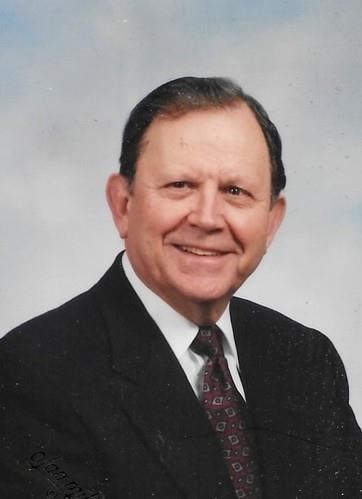Stay Up to Date
Submit your email address to receive the latest industry and Aerospace America news.
William R. Lucas died on 10 February. He was 102.
Lucas earned a B.S. in 1943 from Memphis State College (now University of Memphis). After enlisting in the U.S. Navy in 1943, he graduated from the Navy Supply Corps School at Harvard University and served as a Supply Corps Officer in the U.S., Caribbean, and the Pacific theater during World War II. After discharge from active duty in 1946, he served in the Naval Reserves. Lucas earned a Ph.D. (chemistry, metallurgy) from Vanderbilt University in 1952 and began his career at Redstone Arsenal in the Guided Missile Development Division under the direction of Wernher von Braun.
In 1960, Lucas began working at the newly established NASA Marshall Space Flight Center. His positions included chief of the Materials Division, director of the Propulsion and Vehicle Engineering Laboratory, director of Development, and deputy center director. From 1974 to 1986, he was director of the Marshall Space Flight Center.
His career extended from the early days of the U.S. rocket program through the foundation of the space station. He helped lead the development of the Saturn moon rockets and the lunar rovers. He also oversaw development of the Space Shuttle rockets and fuel tank. After the explosion of the Space Shuttle Challenger in 1986, Lucas admitted to knowing about the possibility of a failure with the O-rings on the rocket. The engineers at Morton Thiokol, the rockets’ manufacturer, requested to stop the launch because of the freezing temperatures; they were overruled. In February 1986, Lucas defended the recommendation to proceed with a launch. Days before the report’s release in June 1986, he announced his retirement.
Lucas was elected to the National Academy of Engineering and the Alabama Engineering Hall of Fame. In 2009, he received the Dr. Wernher von Braun Space Flight Trophy from the National Space Club for his distinguished career in rocketry and science. He was a Fellow of the American Society of Metals, and the American Astronomical Society and a member of the American Chemical Society, among others. He received many awards, including a NASA Exceptional Service Medal for his contributions to the Apollo 11 lunar landing mission and a NASA Distinguished Service Medal. An AIAA Fellow, Lucas was recognized with the Elmer Sperry Award, sponsored by AIAA, IEEE, ASME, SNAME, SAE, and ASCE, in 1986 along with George W. Jeffs, George F. Page, and George E. Mueller, for significant personal and technical contributions to the concept and achievement of a reusable Space Transportation System.
Related Posts
Stay Up to Date
Submit your email address to receive the latest industry and Aerospace America news.




